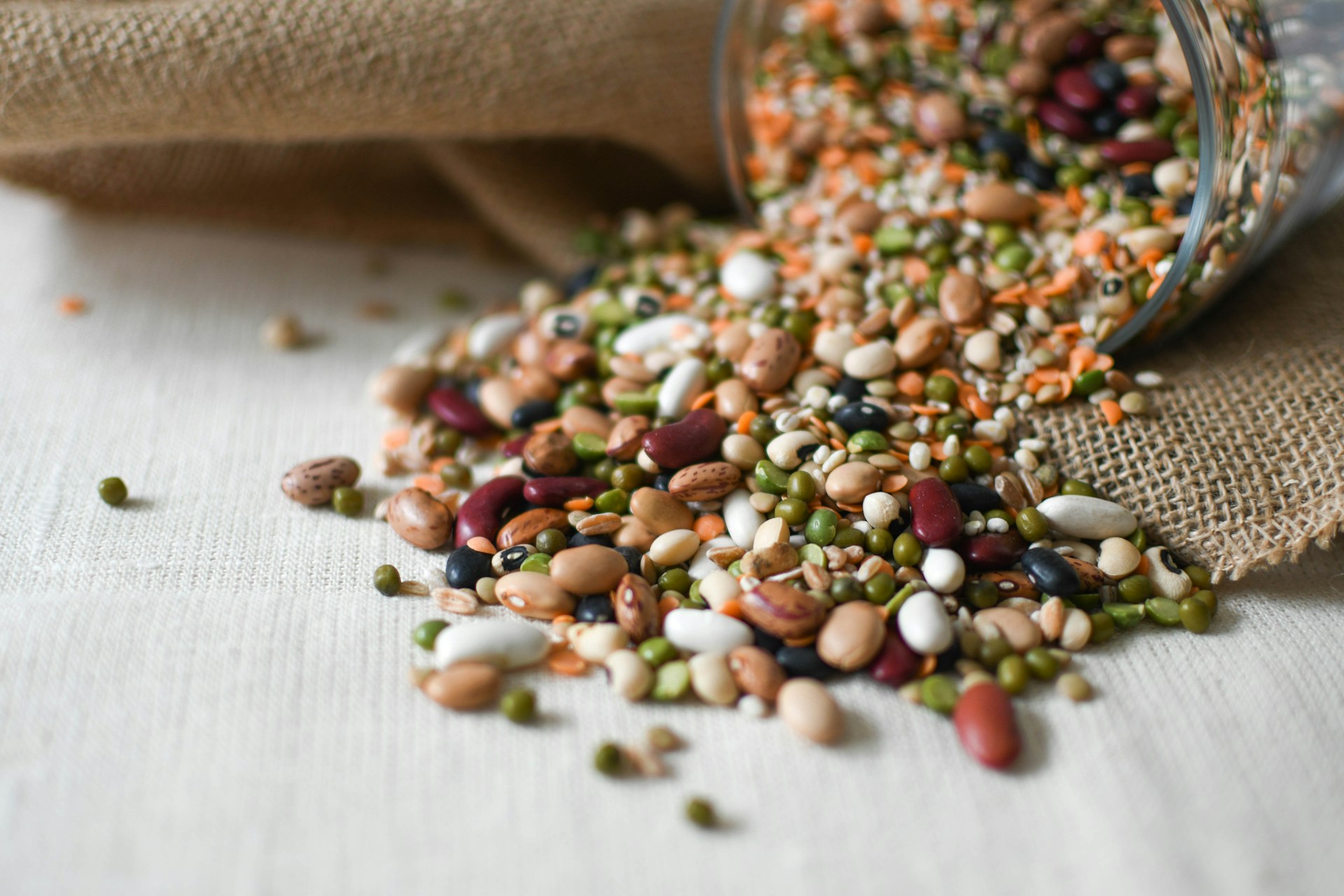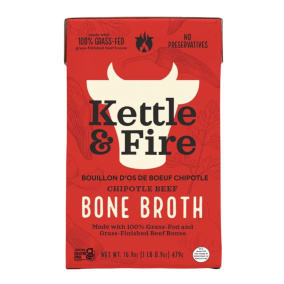
Plant-Based Protein: Meeting Your Daily Needs
Summary
Meeting your protein needs on a plant-based diet is achievable through strategic food choices, proper portioning, and understanding complementary proteins. With the right approach and quality products, plant-based eaters can easily meet—and even exceed—their daily protein requirements while enjoying delicious, varied meals.
Transitioning to a plant-based diet often brings concerns about getting enough protein, especially for those accustomed to animal sources. Many people worry about muscle loss, energy levels, or athletic performance when removing animal products from their meals.
Fortunately, the plant kingdom offers abundant protein sources that can fully meet your nutritional needs when approached thoughtfully. This guide will walk you through exactly how much protein you need, which plant foods deliver the highest quality protein, and practical strategies to ensure you're never left wondering if you're getting enough—all while enjoying delicious, satisfying meals that support your health goals.
Achieving Protein Needs with a Plant-Based Diet
Meeting your protein needs on a plant-based diet is entirely possible through a variety of foods like beans and legumes, grains, nuts, seeds, and plant-based meat alternatives. These sources provide different amino acid profiles that, when consumed throughout the day, deliver all the essential amino acids your body requires to build and maintain muscle tissue. For example, brown rice protein powder is a convenient and complete plant-based protein source to support muscle maintenance and growth.
Key Considerations for Plant-Based Protein Sources
Understanding the quality of plant proteins is essential for those new to a plant-based lifestyle. Unlike animal proteins, most plant sources are considered incomplete, meaning they don't contain all nine essential amino acids in adequate amounts. This doesn't make them inferior—it simply means variety becomes more important.
Different plant foods offer complementary amino acid profiles. For example, grains are typically low in lysine but high in methionine, while beans are higher in lysine but lower in methionine. Combining them creates a complete protein profile, though eating them in the same meal isn't necessary.
- Look for complete plant proteins like quinoa, buckwheat, hemp seeds, chia seeds, and soy products
- Focus on protein digestibility—cooking, sprouting, and fermenting can increase absorption
- Incorporate protein at every meal rather than loading up at dinner
- Consider fortified foods for additional nutritional support
- Pay attention to anti-nutrients in some plant proteins that may reduce absorption
The key to plant-based protein success isn't just quantity but quality and variety. Understanding these considerations and incorporating diverse protein sources will ensure your body receives all the building blocks it needs for optimal health and performance.
Calculating Your Plant-Based Protein Requirements
Determining your daily protein needs on a plant-based diet follows the same principles as any other eating pattern. The Recommended Dietary Allowance (RDA) suggests 0.8 grams of protein per kilogram of body weight for the average sedentary adult. This translates to around 56g daily for a 70kg (154lb) person.
For those who are more active, pregnant, or looking to build muscle, requirements increase. Athletes may need 1.2-2.0g per kilogram of body weight, while strength trainers might aim for the higher end of this range. Therefore, a 70kg active person would need approximately 84-140g of plant protein daily.
- Sedentary adults: 0.8g protein per kg body weight
- Moderately active: 1.0-1.2g per kg body weight
- Athletes: 1.2-1.6g per kg body weight
- Strength training/muscle building: 1.6-2.0g per kg body weight
- Pregnant/nursing women: 1.1-1.4g per kg body weight
To visualize this in real food terms, one cup of lentils provides about 18g of protein, a serving of tofu offers roughly 10g, and a quarter cup of hemp seeds contains 15g. By incorporating various plant proteins throughout your day, meeting your requirements becomes straightforward and delicious, even without animal products.
Best Plant-Based Protein sources:
|
Product |
Serving Size |
Protein (g) per Serving |
|
Tempeh |
1 cup (166g) |
31 |
|
Lentils |
1 cup cooked (198g) |
17.9 |
|
Chickpeas |
1 cup cooked (164g) |
14.5 |
|
Tofu |
1/2 cup (126g) |
10 |
|
Quinoa |
1 cup cooked (185g) |
8 |
|
Edamame |
1 cup cooked (155g) |
17 |
|
Hemp Seeds |
3 tablespoons (30g) |
9.5 |
|
Chia Seeds |
2 tablespoons (28g) |
4.7 |
Tips for Meeting Your Protein Needs with a Plant-Based Diet
Consistency is the key to meeting protein needs on a plant-based diet. Incorporate protein-rich foods at every meal and snack, focusing on variety rather than quantity at any single sitting. This approach ensures steady amino acid availability throughout the day, optimizes absorption, and makes your nutrition goals more achievable without overloading your digestive system.
Consider Plant-Based Milks
Plant-based milks offer a convenient way to boost your protein intake throughout the day. Not all plant milks are created equal when it comes to protein content, however. While almond milk typically contains only 1g of protein per cup, options like soy milk can provide up to 8g per serving.
For maximum nutritional benefit, look for unsweetened, fortified varieties that contain minimal additives. Elmhurst Milked Oats delivers 4g of whole-grain protein per serving with just three simple ingredients—no oils or gums. For an even higher protein option, Ripple Pea Milk offers an impressive 8g per cup, making it comparable to dairy milk while remaining entirely plant-based.
Incorporate Legumes
Legumes are protein powerhouses in the plant kingdom, offering substantial amounts of protein along with fibre, complex carbohydrates, and essential nutrients. Adding beans, lentils, or chickpeas to your meals is one of the most effective ways to increase your protein intake on a plant-based diet.
Start by incorporating legumes into familiar dishes—add black beans to your morning scramble, chickpeas to your lunchtime salad, or lentils to your evening soup. For convenience, chickpeas provide 7g of protein per serving and come ready to eat straight from the can. When you need variety, Siete Family Foods Refried Beans offer a delicious option with clean ingredients and 6g of protein per serving.
Be Mindful of Portions
Calculating protein intake becomes easier when you're mindful of portions and serving sizes. Many plant-based eaters underestimate how much they need to consume to meet their protein targets, particularly when transitioning from animal products.
Visual cues and proper measurement tools can help ensure you're getting enough protein. A kitchen scale is invaluable for accurately tracking intake, especially for foods like tofu and tempeh where visual estimation is difficult. Nutpods Coffee Creamer can replace traditional dairy creamer while adding a modest protein boost to your daily coffee ritual.
- Aim for a palm-sized portion of dense protein (tofu, tempeh, seitan) at each meal
- Include a half-cup of beans or lentils in at least two meals daily
- Add 2 tablespoons of seeds or nuts to snacks and meals for protein boosts
- Remember that vegetables contain small amounts of protein that add up
- Track your intake for the first few weeks to develop an understanding of portions
Optimize Protein Absorption
Maximizing the absorption of plant proteins is just as important as consuming them. Specific preparation methods can significantly increase the bioavailability of protein and other nutrients in plant foods.
Soaking, sprouting, and fermenting help neutralize anti-nutrients like phytic acid that can inhibit protein absorption. This is particularly important for beans, grains, nuts, and seeds. Products like Plant-Based Jerky are fermented to improve protein availability, offering 7g of highly absorbable protein per serving.
For breakfast options, Poppi Prebiotic Soda contains beneficial probiotics that support gut health, potentially improving overall nutrient absorption when consumed with protein-rich foods.
Combine Complementary Proteins
Strategically combining complementary protein sources throughout your day ensures you're getting all essential amino acids in adequate amounts. While you don't need to combine them at every meal, including a variety of protein sources daily is beneficial.
Traditional food combinations from around the world demonstrate this principle: beans with rice, hummus with pita, and lentils with rice all provide complementary amino acid profiles. Kettle & Fire Plant-Based Broth contains protein from various vegetable sources, creating a more complete amino acid profile in a convenient form.
- Combine grains (rich in methionine) with legumes (rich in lysine)
- Pair nuts and seeds with legumes for complementary effects
- Add nutritional yeast to dishes for a B12 and protein boost
- Include soy products regularly as they contain all essential amino acids
- Rotate protein sources weekly to ensure micronutrient diversity
Your Plant-Based Protein Partner
At Natura Market, we understand the challenges of navigating a plant-based lifestyle, which is why we've curated the finest selection of protein-rich products to support your nutritional journey. Our team carefully selects each item based on quality, nutritional profile, and sustainability, ensuring you have access to the best plant proteins available in Canada.
We're committed to making plant-based eating accessible and enjoyable for everyone, regardless of your dietary preferences or restrictions. From complete protein sources to complementary food combinations, Natura Market provides everything you need to thrive on a plant-based diet while offering educational resources to help you make informed choices about your nutrition and health.





